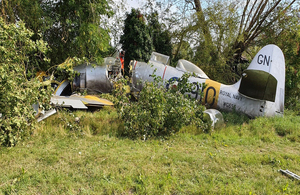A new report investigating the death or serious harm of 23 babies is calling for midwives, health visitors and social workers to provide more support to fathers.
The independent Child Safeguarding Practice Review Panel reviews serious child safeguarding cases – when a child dies or suffers serious harm, and abuse or neglect is known or suspected. The panel’s latest review looks at the lives of babies who were known or suspected to have been seriously harmed or killed by their father, step-father or male carer. The aim is to understand what led the perpetrators to harm their children, and what could be done to prevent similar incidents.
The key findings show that while maternal health and wellbeing are, and should be, the main focus of maternity services, insufficient attention to men means that support for them to be active and engaged fathers is limited. The Panel is calling for universal, antenatal and perinatal services to work with fathers so significant risk factors, such as domestic abuse, substance misuse, and mental health problems, are addressed and the fathers are offered support before the additional stressor of a baby’s birth.
Chair of the Child Safeguarding Practice Review Panel, Annie Hudson said:
The panel has received a significant number of notifications about non accidental injury to small babies where fathers and stepfathers are known or suspected to have been the perpetrators of the abuse. Some children died as a result and many of those who survived face a lifetime of life limiting conditions.
This report makes clear that these men must be held to account for this abuse but there is an equally strong imperative for everyone involved in safeguarding children to ‘see’ and know more about these men, their complex histories, the impact of substance abuse and of mental health issues.
This report indicates that there are systemic weaknesses in how services operate so that too often, fathers remain hidden, unassessed and unengaged. Everyone involved in safeguarding children must give more effective focus to working with fathers who are struggling and whose behaviour and backgrounds may present risk to children. This is vital if we are to protect better very vulnerable babies in the future.
President of the Association of Directors of Children’s Services, Charlotte Ramsden said:
This latest national learning review from the Child Safeguarding Practice Review Panel considers some very distressing cases. It is clear the pandemic has intensified some of the ‘hidden harms’ we’ve heard about, bringing the health, safety and wellbeing of children to the fore. Babies and very young children cannot tell us how they feel or what is happening to them and disrupted access to the formal and informal networks families rely on, from health visitors to grandparents, further heightens the risk of harm as the rise in serious incident notifications shows.
This review highlights some longer term challenges in both policy and practice that require urgent action. This includes the involvement of, and focus on men, both before the birth of a baby and the weeks and months following. Our collective focus is almost exclusively on mother and child and this is crucial, but we must make space for fathers and other male figures in both assessments and offers of parenting support.
The panel calls for new government investment in multi-agency responses, which the Association wholly supports. The role of health services are particularly important but there is more we can all do as local leaders, strategic partnerships and frontline professionals, to understand and respond to the needs of men and share our respective insights in order to keep children safe.
Dr Jeremy Davies of the Fatherhood Institute, who led the literature review said:
There is a real lack of attention to fathers and father-figures, both in the data and research underpinning our understandings of the risks posed to babies, and in the design, delivery and evaluation of services that might better protect against these rare but tragic cases. Our findings suggest that if services routinely found out about, met and supported dads – and worked actively to identify and reduce the risks a small proportion of them pose – more lives could be saved.
As part of the review, a clinical psychologist interviewed 8 men who have been convicted of either killing or causing serious harm to a baby and are currently serving a prison sentence. The aim of these interviews was to explore the experiences of the men of their own childhood and their experiences of professionals and agencies. One case study shows how the father’s history of drug use, mental health problems and violence, were not sufficiently registered by practitioners before their baby’s birth.
‘Father AB was mentally unwell. He had been hearing voices telling him to harm others, he had chronic sleep disturbance and a long history of cannabis abuse. His compliance with any prescribed medication was poor and his engagement with mental health services very erratic. The information about his risk was there and well documented in his medical records and yet, none of this was communicated with children’s services when he became a prospective and then new father.’
The review engaged over 300 practitioners during fieldwork visits to 19 local areas and in a series of roundtables with stakeholder organisations. As one health visitor said: “the father is not on my caseload”, which highlights that frontline practitioners cannot solve this problem alone.
Therefore, the review makes the following recommendations for the government:
- the engagement of fathers must be embedded in prospective and current programmes, including Family Hubs, the Troubled Families Programme and the follow-up work stemming from the Leadsom Review into ‘Best Start for Life: A vision for the first 1001 critical days’
- a pilot project should be funded to holistically work with expecting fathers who meet the risk factors outlined in this review, providing them with perinatal health provision, local mental health and substance misuse services, and local initiatives to tackle domestic abuse, in a collective and integrated service response
- there should be further research into the backgrounds, characteristics and trigger factors of male perpetrators of serious harm, with a view to understanding how practitioners across agencies can more effectively engage with those who might present a potential risk to babies in their care
Notes to editors:
The Child Safeguarding Practice Review Panel is an independent body that was set up in July 2018 to identify, commission and oversee reviews of serious child safeguarding cases. It brings together experts from social care, policing and health to provide a multi-agency view on cases which they believe raise issues that are complex, or of national importance.
The panel received notification of 257 incidents of non-accidental injury to under ones between July 2018 and July 2020.
Also published today are supplementary reports, which underpin the data and analysis:


